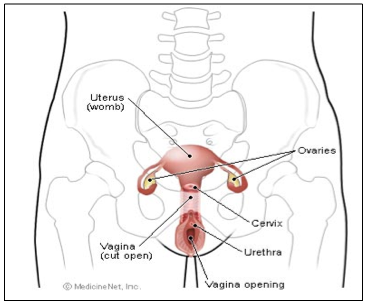Let’s Talk!
It’s your annual exam and you are lying on your back. Your family doctor is about to examine your cervix and other sexual organs (i.e. vagina and ovaries). A metal instrument is inserted into your vagina to keep it open and to see your cervix. Then, your doctor uses a cotton-tipped swab to obtain a sample of cells and mucus from the outer part of your cervix.
Most health care professionals know the purpose of a Pap test as it relates to HPV. You may only have a vague idea as to why your family doctor does this procedure on you every year. Actually, you may not even know what “HPV†stands for.
An HPV (Human Papillomavirus) is a virus that infects the skin and mucous membranes of humans. So far, scientists have identified about 130 types. Some strains cause warts, other cancer, while another group does not cause any symptoms. HPV is the most common sexually transmitted disease in North America, and most affected individuals don’t know how or when they were infected.
Both sexes can contract HPV but for women, one of the main concerns is that about a dozen of these viruses (i.e., Type 16, 18, 31) can cause cervical cancer. That’s why your family doctor takes samples of your cells and fluid from your cervix and smears them on glass slides. The slides are sent to a lab for examination under a microscope to identify any abnormal changes.
* Your cervix is the part of your uterus that protrudes into your vagina (see near the middle of the illustration below).
If your cervical cells are abnormal, your family doctor will repeat the Pap test and send another sample to the lab. If the results are still positive, your doctor may refer you to a Gynecologist for a more advanced examination of your cervix (i.e. Colposcopy).
It takes many years from the moment you are infected by a cancer-causing HPV to the point of developing cervical cancer. Most HPV’s are cleared by your immune system and you may have no symptoms.
Cervical cancer is the leading cause of cancer death in developing countries, so we are privileged to have access to annual Pap tests in North America. Although it may be uncomfortable, it only takes a few minutes, and it can literally save your life.
Literary Truths
Here are some ways to reduce your risks of being infected by a Human Papillomavirus:
- Limit your number of sexual partners: each new person you come into contact with can be a carrier of several HPV types.
- Avoid sexual contact with individuals who have multiple partners: you are indirectly exposing yourself to a greater number of HPV’s.
- Use a latex condom: it’s not 100% effective, but it reduces the skin areas you come into contact with during vaginal intercourse.
- Get vaccinated: the newly available vaccines can protect you from some of the most common cancer-causing HPV’s. **Do your own research on the long-term effects of such vaccines before taking them.**
If you have been infected:
- Have regular Pap tests: your family doctor may ask you to be checked every 6 months instead of once a year.
- Keep your Gynecologist’s appointment: he/she may perform a more advanced examination (i.e. Colposcopy).
- Don’t smoke: smoking can change normal cells into cancerous ones.
- Eat plenty of fruits and vegetables: vitamins A, C, E, Folic acid, and lycopene found in these foodstuffs reduce the persistence of HPV infections.
- Increase your consumption of fish oil and Coenzyme Q10: high levels of fish oil and Q10 in the diet is correlated with fewer cases of cervical cancer.
- Inform your partner: you may have infected him/her and treatment could be needed.
- Use a latex condom: you may have been infected by a certain strain of HPV but you are still vulnerable to other types.
Truth in Motion
References

This is really a great post.. very informative.
Great information. Thank you for making this data available for me and everybody else.
Hey very nice blog!! Man .. Beautiful .. Amazing .. I will bookmark your blog and take the feeds also…
Very educational write-up!
Many thanks..really useful!!
Undoubtedly a superb piece of writing! I’ve bookmarked it and sent it out to every one of my close friends as I know they’ll be intrigued, thank you very much!